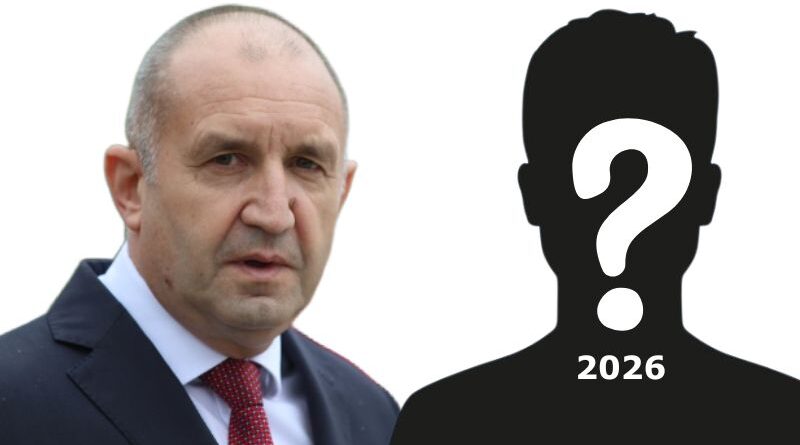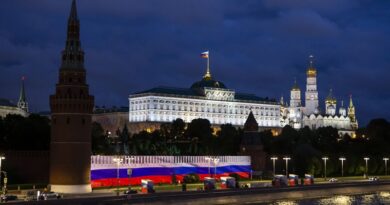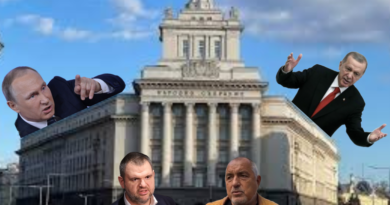President Radev and the Soviet Legacy
President Rumen Radev’s recent criticism of the West for supporting Ukraine’s counteroffensive serves as a stark reminder that, no matter how many terms he may serve—third, fourth, or even more—his ideological foundation remains firmly rooted in Soviet tradition. His position as president, with the responsibilities it entails, functions as a statehood straitjacket, temporarily restraining his instincts as a staunch defender of “eternal brotherhood” with Russia. Yet, these restraints are loosening as his term nears its end.
The General’s Paradox
Radev’s credentials as a graduate of a General Staff academy and a former guardian of Bulgaria’s skies should, at first glance, mark him as a model patriot and statesman. Yet his recent remarks—such as questioning who is responsible for Ukraine’s counteroffensive—are bafflingly inadequate. How can one fault Ukraine for launching a counteroffensive to repel an invader on its own territory? To shift blame onto Europe is even more bewildering. Such statements reveal a fundamental and irreversible flaw in his reasoning.
Consider a hypothetical scenario: the Commander-in-Chief refusing to lead Bulgarian forces to reclaim occupied territory after an invasion. History is clear on how such dereliction of duty is treated—military tribunal.
The Advisors and Their Advice
One of President Radev’s key weaknesses lies in his choice of advisors—not necessarily in their competence but in their ideological leanings and ability to tame his political instincts. Alternatively, they may be feeding him flawed advice, such as the suggestion that now is the opportune moment to “appease” Putin during the U.S. presidential transition. Instead of championing pragmatism, they bolster his delusions of “Moscow can’t lose,” diminishing Bulgaria’s credibility among its EU and NATO allies.
Support Independent Analysis
Help us keep delivering free, unbiased, and in-depth insights by supporting our work. Your donation ensures we stay independent, transparent, and accessible to all. Join us in preserving thoughtful analysis—donate today!
It’s as though Radev and his advisors are racing to exploit a perceived “window of opportunity” for geopolitical posturing before Trump’s hypothetical return to power closes it. Ironically, Trump himself recently declared that Putin has two choices to end the war: the easy way or the hard way.
From NATO to the EU
While Bulgaria officially claims to combat Russian hybrid warfare, President Radev frequently acts as its chief proponent, amplifying manipulative narratives. Unsurprisingly, support for the EU and NATO in Bulgaria is waning. This is not an organic trend but the result of deliberate efforts by various forces, including the presidency, to quietly undermine the significance of these alliances.
How else can one interpret Radev’s criticism of the West for supporting Ukraine, claiming it prolongs the war? The logical conclusion of his argument is clear: “Surrender, Ukraine, and let Russia declare victory.” Yes, we’ve repeatedly heard that Russia cannot be defeated. But has Radev ever stated that Ukraine cannot be defeated? No—and he won’t. Imagine the implications for Europe’s security if the war ends as envisioned by Bulgaria’s president.
The European Project and Its Future
In the aftermath of Trump’s presidency and amid the war in Ukraine, the EU has been forced to decisively address security challenges, increasingly blending its role with that of NATO. This development places Bulgaria’s pro-Russian “agents of influence” in a precarious position—they find themselves unable to distinguish their battles against Atlanticism from their battles against Europeanism.
In this context, Bulgaria’s entry into the Eurozone assumes greater significance, extending beyond financial and economic security to encompass military and political stability. Future investments will likely focus on artificial intelligence, innovation, and the defense industry, which is poised to become a critical growth driver.
What Kind of President Do We Want?
With presidential elections scheduled for the fall of next year, now is the time to reflect on the kind of leader Bulgaria needs to represent its interests on the international stage. Only through clarity, strategy, and unwavering principles can we avoid repeating past mistakes and ensure Bulgaria’s future as part of the free and democratic world.
Ilian Vassilev




